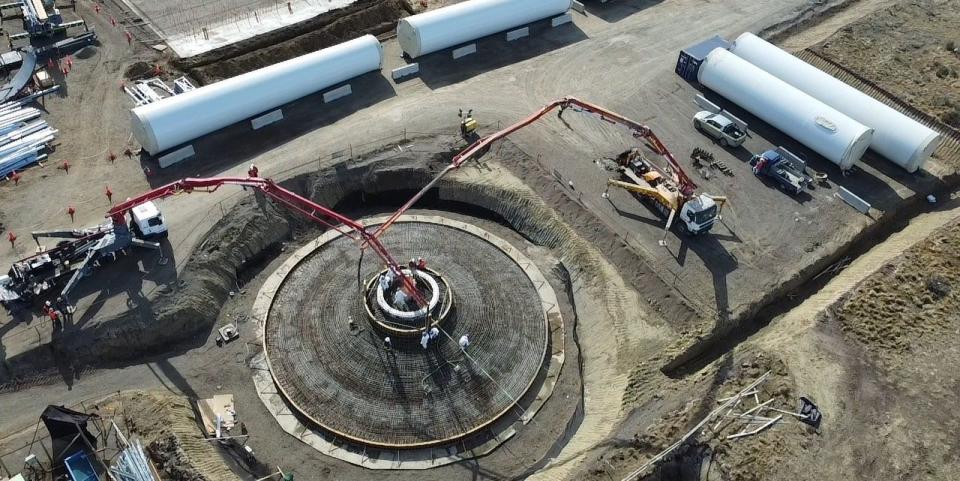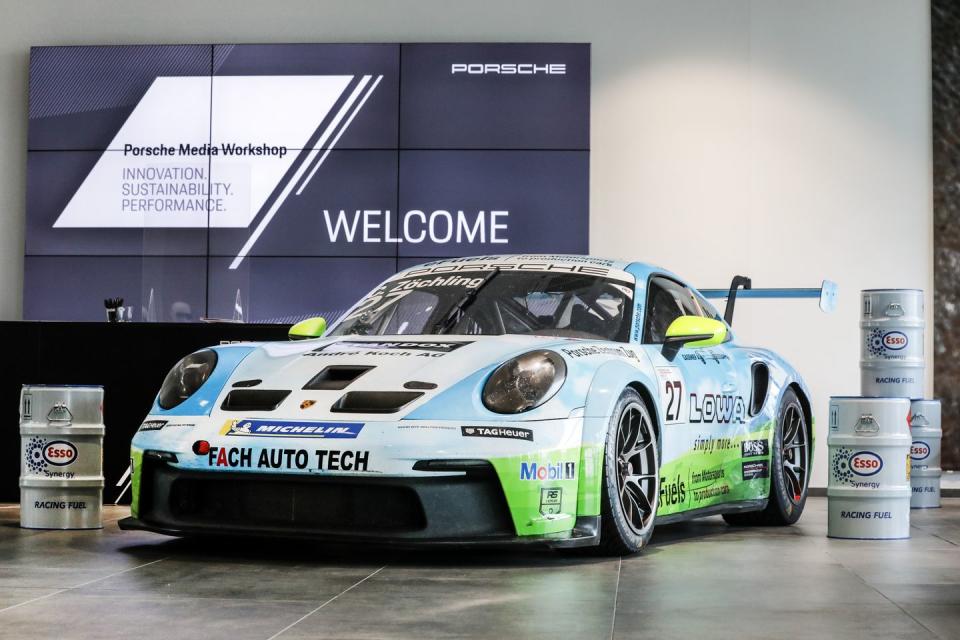A Massive E-Fuel Plant Is Coming to Texas

Electric propulsion is on every automaker's mind, but brands like Porsche and Mazda are also investigating carbon-neutral gasoline as a clean alternative to going full-electric.
E-fuels are not new but the financial backing behind the technology is starting to take off, with companies like HIF Global building two new e-fuel facilities.
Texas will soon be the global headquarters of e-fuel production, according to HIF Global, as the company starts construction on its newest plant.
The Texas Commission on Environmental Quality has issued an Air Quality Permit authorizing Highly Innovative Fuels Global to build an eFuels facility in Matagorda County, Texas. At its peak, HIF Global expects to produce around 200 million gallons of e-fuel per year, allowing for the decarbonization of over 400,000 vehicles. To achieve these goals, the company says it will need 2 million tons of recycled carbon dioxide as well as approximately 300,000 tons of green hydrogen separated from water using renewable electricity. Once constructed, the Texas facility will allegedly be the largest e-fuel plant and producer in the world.
For context, e-fuels are synthetic gasoline or diesel built up from a combination of renewably produced hydrogen from water via hydrolysis and captured carbon dioxide, as Autoweek contributor Jim Motavalli explains. And our cars are technically able to run on e-fuels as they sit, given that the fuel is designed to replicate gasoline in an environmentally friendly manner. E-fuels aren't exactly new, as demonstrated by Porsche's excitement around them, but the process to create them isn't as easy as installing a home EV charger.

Both sides of the automotive science spectrum share concerns about the long-term ability to produce and use e-fuels. The Clean Transportation Program at the Union of Concerned Scientists has previously said the likelihood of tailpipe emissions from even the cleanest e-fuel is high. After all, a combustion engine is still burning e-fuels.

 Yahoo Autos
Yahoo Autos 